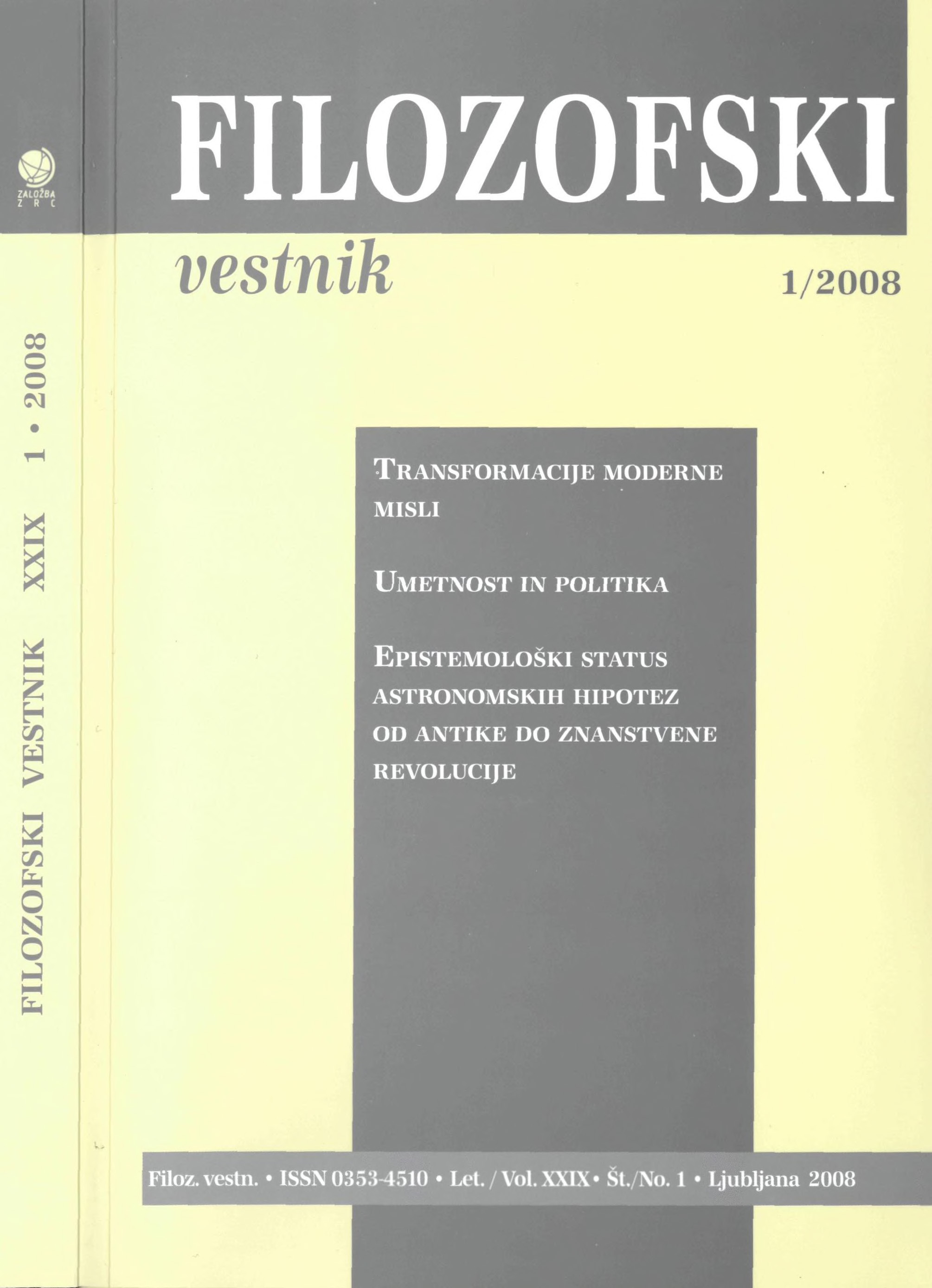Romantična politika in revolucionarna umetnost
Ključne besede:
avantgarda, romantika, emancipacija, manifestPovzetek
Razprava povezuje avantgardna gibanja v dvajsetem stoletju z romantično željo po radikalni transformaciji družbe z estetskimi sredstvi. Avtor dokazuje, da so avantgarde peljale naprej romantični projekt, katerega koreninam lahko sledimo najmanj do Schillerjevih pisem O estetski vzgoji človeka, in da kljub zahtevam o radikalno novih estetskih usmeritvah ta gibanja niso temeljno prelomila z omenjeno razsežnostjo romantike. To je posebej očitno v številnih avantgardnih manifestih, ki so si prisvojili podzvrst, katere izvori so očitno politični. V minulih desetletjih so se kritiki varovali pred vzporednim tveganjem, povezanim z »estetizacijo politike«. Pojavilo se je splošno spoznanje, da moč pogosto deluje prek suženjstva in da je bil spektakel eno od priljubljenih fašističnih sredstev prepričevanja. Retorika manifesta je spektakularna na sebi lasten način, toda zastavlja težji primer: niti dejstvo njegove zveze z emancipatornimi ideali niti njegov izvor v Marxovih in Engelsovih spisih se nista izkazala zadostnega, da bi ga branila pred prisvojitvijo za avtoritarne cilje. Menim, da je razlog ta, da je manifest popeljal umetnost zunaj zgodovine; prinašal je različico romantičnega upanja, da bi umetniški razred lahko spremenil svet, kjer ga delavski razred ni. V zaključku predlagam, da medtem ko je manifest že dolgo nazaj prenehal služiti kot živa forma za izražanje estetskih ali političnih pogledov, si moramo vendarle zamisliti vrsto ciljev, ki bi lahko nadomestili njegove romantične politične upe.Prenosi
Podatki o prenosih še niso na voljo.
Prenosi
Objavljeno
2016-03-05
Kako citirati
Cascardi, A. J. (2016). Romantična politika in revolucionarna umetnost. Filozofski Vestnik, 29(1). Pridobljeno od https://ojs.zrc-sazu.si/filozofski-vestnik/article/view/4415
Številka
Rubrike
Umetnost in politika
Licenca
Avtorji jamčijo, da je delo njihova avtorska stvaritev, da v njem niso kršene avtorske pravice tretjih oseb ali kake druge pravice. V primeru zahtevkov tretjih oseb se avtorji zavezujejo, da bodo varovali interese založnika ter da bodo povrnili morebitno škodo.
Podrobneje v rubriki: Prispevki





